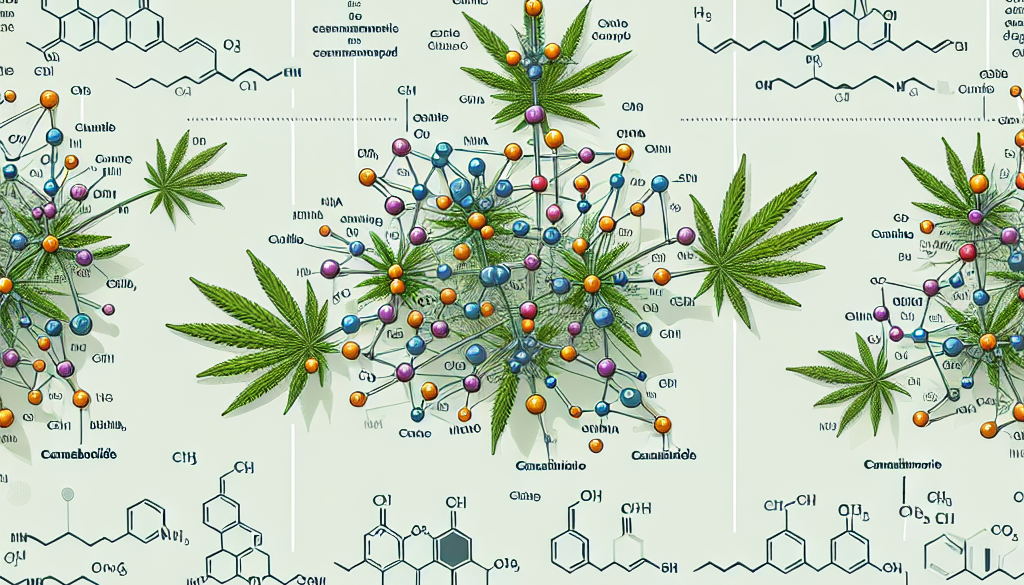CBD vs CBC vs CBG: Detailed Comparison
-
Table of Contents
- CBD vs. CBC vs. CBG: A Detailed Comparison of Cannabinoids
- Understanding Cannabinoids: CBD, CBC, and CBG
- CBD (Cannabidiol)
- CBC (Cannabichromene)
- CBG (Cannabigerol)
- Chemical Structure and Interaction with the Body
- CBD’s Interaction with the ECS
- CBC’s Interaction with the ECS
- CBG’s Interaction with the ECS
- Potential Health Benefits and Research
- Health Benefits of CBD
- Health Benefits of CBC
- Health Benefits of CBG
- Legal Status and Availability
- Choosing Between CBD, CBC, and CBG
- Conclusion: Key Takeaways in Cannabinoid Comparison
- Discover ETchem’s Protein Products
CBD vs. CBC vs. CBG: A Detailed Comparison of Cannabinoids
The world of cannabinoids is rapidly expanding beyond the well-known THC and CBD. As research delves deeper into the cannabis plant’s potential, compounds like CBC (cannabichromene) and CBG (cannabigerol) are emerging with promising benefits. This article will explore the differences between CBD, CBC, and CBG, examining their unique properties, potential health benefits, and the current state of research.
Understanding Cannabinoids: CBD, CBC, and CBG
Cannabinoids are a class of diverse chemical compounds that act on cannabinoid receptors in the body. The most studied cannabinoids are delta-9-tetrahydrocannabinol (THC) and cannabidiol (CBD), but there are over a hundred other cannabinoids, including CBC and CBG, that contribute to the therapeutic potential of cannabis.
CBD (Cannabidiol)
CBD is a non-psychoactive compound known for its potential therapeutic benefits. It has gained popularity for its ability to provide relief from anxiety, pain, and inflammation without causing a “high.”
CBC (Cannabichromene)
CBC is another non-psychoactive cannabinoid that has been less studied than CBD but shows promise in areas such as pain relief, anti-inflammation, and neuroprotection.
CBG (Cannabigerol)
CBG is often referred to as the “mother of all cannabinoids” because other cannabinoids are derived from its acidic form, CBGA. Like CBD and CBC, CBG is non-psychoactive and has potential therapeutic properties.
Chemical Structure and Interaction with the Body
While CBD, CBC, and CBG share a similar molecular structure, they interact with the body’s endocannabinoid system (ECS) in different ways. The ECS is a complex network of receptors that helps regulate various physiological processes, including mood, appetite, pain, and immune system response.
CBD’s Interaction with the ECS
CBD has a low affinity for cannabinoid receptors and instead influences the ECS indirectly. It modulates the activity of enzymes and other receptors, potentially enhancing the effects of the body’s own cannabinoids.
CBC’s Interaction with the ECS
CBC binds poorly to cannabinoid receptors but interacts with other receptors involved in pain perception. It may also enhance the effects of other cannabinoids through the entourage effect.
CBG’s Interaction with the ECS
CBG binds to both CB1 and CB2 receptors in the ECS, potentially influencing mood, appetite, and pain response. It also has antibacterial properties and may inhibit the uptake of GABA, which could affect relaxation and tension relief.
Potential Health Benefits and Research
Each cannabinoid has unique properties that contribute to its potential health benefits. Research is ongoing, and while some findings are promising, more studies are needed to fully understand the effects and therapeutic applications of these compounds.
Health Benefits of CBD
- Anxiety and Depression: CBD has been shown to have anxiolytic and antidepressant effects in both animal and human studies.
- Pain and Inflammation: CBD may help reduce chronic pain and inflammation by influencing ECS receptor activity.
- Epilepsy: The FDA has approved a CBD-based medication, Epidiolex, for the treatment of certain seizure disorders.
Health Benefits of CBC
- Neuroprotection: CBC may promote neurogenesis and help protect neural cells against damage.
- Anti-inflammatory: Like CBD, CBC has demonstrated anti-inflammatory properties in animal studies.
- Antidepressant: Early research suggests that CBC may contribute to the overall mood-elevating properties of cannabis.
Health Benefits of CBG
- Glaucoma: CBG may help reduce intraocular pressure, making it a potential treatment for glaucoma.
- Inflammatory Bowel Disease: CBG has shown promise in reducing inflammation associated with IBD in animal models.
- Antibacterial: CBG has demonstrated antibacterial activity, particularly against MRSA microbial strains resistant to several classes of drugs.
Legal Status and Availability
The legal status of cannabinoids can vary widely depending on the country and state. In the United States, the 2018 Farm Bill legalized hemp-derived cannabinoids with less than 0.3% THC, which includes CBD, CBC, and CBG. However, the regulatory landscape is still evolving, and consumers should be aware of the laws in their area.
Choosing Between CBD, CBC, and CBG
When deciding between CBD, CBC, and CBG, consider the specific health concerns you are looking to address. While CBD is the most researched and widely available, CBC and CBG offer unique benefits that may be more suited to certain conditions. Always consult with a healthcare professional before starting any new supplement regimen.
Conclusion: Key Takeaways in Cannabinoid Comparison
In conclusion, CBD, CBC, and CBG each offer distinct properties and potential health benefits. CBD is well-known for its anxiolytic and anti-inflammatory effects, CBC is gaining attention for its neuroprotective and antidepressant potential, and CBG shows promise in treating glaucoma and combating bacterial infections. As research continues to uncover the nuances of these cannabinoids, their therapeutic applications are likely to expand.
Discover ETchem’s Protein Products
If you’re interested in health and wellness products, consider exploring ETchem’s range of protein offerings. ETchem is a reputable Chinese Collagen factory manufacturer and supplier, providing high-quality collagens suitable for various industries. Their products are characterized by a neutral taste and instant solubility, making them an excellent choice for nutraceutical, pharmaceutical, and food and beverage applications.
About ETChem:
ETChem, a reputable Chinese Collagen factory manufacturer and supplier, is renowned for producing, stocking, exporting, and delivering the highest quality collagens. They include marine collagen, fish collagen, bovine collagen, chicken collagen, type I collagen, type II collagen and type III collagen etc. Their offerings, characterized by a neutral taste, instant solubility attributes, cater to a diverse range of industries. They serve nutraceutical, pharmaceutical, cosmeceutical, veterinary, as well as food and beverage finished product distributors, traders, and manufacturers across Europe, USA, Canada, Australia, Thailand, Japan, Korea, Brazil, and Chile, among others.
ETChem specialization includes exporting and delivering tailor-made collagen powder and finished collagen nutritional supplements. Their extensive product range covers sectors like Food and Beverage, Sports Nutrition, Weight Management, Dietary Supplements, Health and Wellness Products, ensuring comprehensive solutions to meet all your protein needs.
As a trusted company by leading global food and beverage brands and Fortune 500 companies, ETChem reinforces China’s reputation in the global arena. For more information or to sample their products, please contact them and email karen(at)et-chem.com today.





